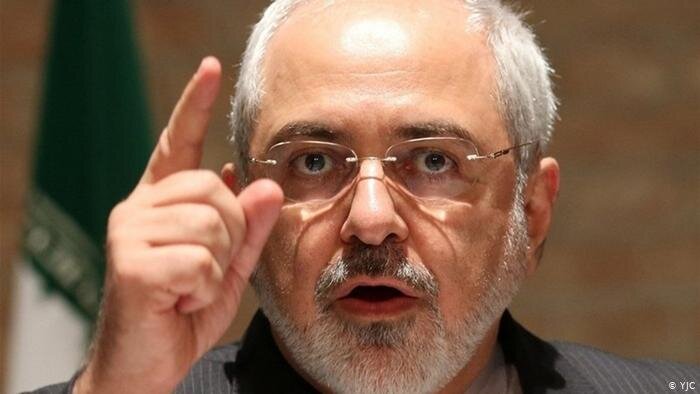E3 totally impotent in face of U.S. pressure, says Zarif

TEHRAN — Iran's Foreign Minister Mohammad Javad Zarif says the three European countries signatory to the 2015 Iran nuclear deal are absolutely powerless against the U.S. coercion.
E3 must stop public face-saving & muster the courage to state publicly what they admit privately: their failure to fulfill even own JCPOA duties due to total impotence in resisting US bullying
— Javad Zarif (@JZarif) June 19, 2020
Behind facade, E3 are accessories to Trump & Netanyahu—& in no position to counsel Iran pic.twitter.com/sdoOBJECeS
The remarks by Zarif came hours after the representatives of the 35-nation Board of Governors at the International Atomic Energy Agency passed a controversial resolution to push for intrusive inspections of two old places in Iran which is claimed nuclear activities may have been done there.
The resolution had been proposed by Britain, France and Germany, known as E3.
“E3 must stop public face-saving and muster the courage to state publicly what they admit privately, their failure to fulfill even own JCPOA duties due to total impotence in resisting the US bullying behind the facade, E3 are accessories to Trump and Netanyahu—and in no position to counsel Iran,” Zarif wrote in a tweet on Friday.
Zarif says Britain, France and Germany “are accessories to Trump and Netanyahu”.Rafael Grossi, director general of the IAEA, recently made anti-Iran allegations, saying that Tehran had refused to grant access to what he called “two nuclear sites”.
China and Russia, two members of the JCPOA, voted against the resolution. Seven other countries including the Republic of Azerbaijan, India, Mongolia, Niger, Pakistan, South Africa, and Thailand refused to vote.
Earlier, Iran's Foreign Ministry spokesman rejected the politically motivated and non-technical resolution of the Board of Governors of the International Atomic Energy Agency (IAEA), saying, “While the Islamic Republic of Iran has the highest level of cooperation with the IAEA, adoption of a resolution by the Board of Governors is a completely non-constructive and disappointing step in this regard.”
Kazem Gharibabadi, Iran’s ambassador to the IAEA, said on Friday that Iran will take appropriate action in response to the move taken by the IAEA board in adopting the anti-Iran resolution.
“Iran categorically deplores this resolution and will take appropriate action in response, the repercussions of which would be upon the sponsors of this resolution,” Gharibabadi said in a statement.
Behrooz Kamalvandi, spokesman for the Atomic Energy Organization of Iran (AEOI), has said that the IAEA must not give credit to unreliable information publicized through “spying activities”.
“The agency must not rely on and give credit to the information that have been reached through spying activities and unreliable sources,” the Mehr news agency quoted Kamalvandi as saying in an article published on Saturday.
Kamalvandi wrote, “In fact, any request for transparency or complementary access by the agency based on fake evidence are against the agency’s charter. So, it does not make any obligation for Iran to fulfil such requests.”
U.S. President Donald Trump unilaterally withdrew the United States from the nuclear deal, officially known as the Joint Comprehensive Plan of Action (JCPOA), in 2018, but other signatories vowed to salvage it.
However, Tehran argues that the other signatories to the JCPOA – particularly France, Britain and Germany – have not done enough to save the deal from the U.S. pressure.
Meanwhile, according to the IAEA’s 129-page 2019 Safeguards Implementation Report, Iran received the biggest part of the inspections that were carried out worldwide by the atomic organization’s inspectors, and the figure stood at 21 percent of the entire visits made to various nuclear sites.
The Trump administration is also working to extend a UN-imposed arms embargo due to expire in October under the JCPOA.
MH/PA
Leave a Comment